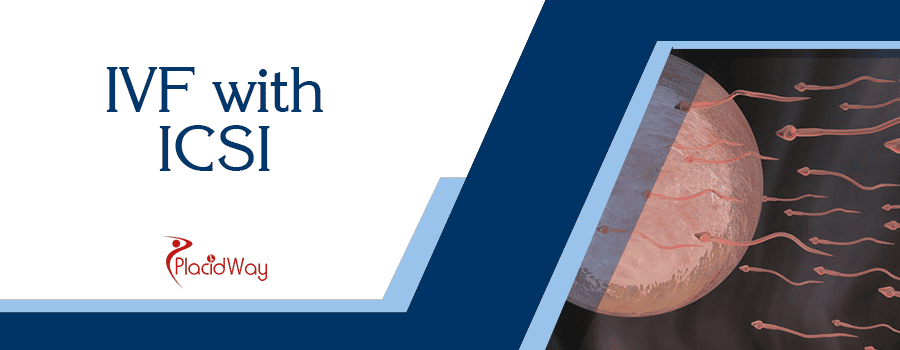
IVF with ICSI Treatment Abroad
Intracytoplasmic Sperm Injection (ICSI) is a specialized form of IVF that is used for the treatment of severe cases of male-factor infertility. ICSI involves the injection of a single sperm directly into a mature egg. ICSI is a popular treatment for men whose sperm count is too low or inadequate to ensure fertilization of eggs. The process utilizes specialized equipment and tools, but is an effective treatment for many couples dealing with infertility issues due to a variety of causes.
Who is a good candidate for the IVF with ICSI procedure?
ICSI-IVF is recommended for couples who have had poor or no fertilization during standard IVF, as well as men who have:
Treatment
Just like the standard IVF treatment, fertility medications will be necessary to stimulate the ovaries to be able to develop several mature eggs for fertilization. The fertility specialist will use ultrasound and several blood tests, to monitor this stage of your treatment. When the eggs are ready to be collected the couple will undergo separate procedures.
The partner will be asked to produce a sperm sample himself, by ejaculating into a cup on the same day as your eggs are collected. If there is no sperm in his semen, or he's unable to ejaculate, the doctor will have to extract sperm from him, by using a fine needle to take the sperm from the epididymis, in a procedure known as percutaneous epididymal sperm aspiration (PESA) or testicle, in a procedure known as testicular sperm aspiration (TESA). Both procedures are done under local anesthetic.
If these techniques don't remove enough sperm, the doctor may take a biopsy of testicular tissue, which sometimes has sperm attached. This procedure is known as testicular sperm extraction (TESE) or micro-TESE, if the surgery is carried out with a microscope. The obtained sperm are frozen.
The eggs will be retrieved from the woman using a fine, hollow needle, attached to an ultrasound probe. She might feel a bit bruised and sore after egg retrieval and have some light bleeding.
An embryologist will isolate individual sperm in the lab and inject them into individual eggs. After a day the fertilized eggs will have become embryos and from this point the procedure is similar to the IVF one. One or two embryos will be transferred into the woman's womb, through the cervix, using a fine catheter (tube) usually guided by ultrasound. The maximum number of embryos to be transferred is two, but if the woman is under 40 years old, she might undergo the elective single embryo transfer (eSET) procedure which can increase her chances of having a healthy single baby at term. For women over 40 years old, two embryos are transferred because the chances of conceiving with their own eggs are smaller.
The embryo will attach to the wall of the womb and start growing to become a baby. After two weeks a pregnancy test will show the expected results. If there are any good-quality embryos left, they can be frozen in case this cycle isn't successful or for having another baby in the future.
Benefits
Cost
In the United States, the cost of IVF with ICSI can run between $10,000 and $17,000 for a single cycle. However, medical travelers can benefit from the same treatments for much less. In Poland, the price for this procedure starts at $1,830, in the Czech Republic from $2,235, in Greece from $2,611, in Cyprus from $3,100, in Russia from $3,310, in Turkey from $3,700, in Mexico from $5,300 and in Thailand from $7,100.
How to find the best clinic?
An OB/GYN should be Board certified in his or her field in his or her country of origin, as well as in Reproductive Endocrinology in order to offer excellent and experienced reproductive and fertility treatment services. Physicians work in conjunction with highly trained clinical staff to complete the IVF with ICSI process. Individuals seeking IVF with ICSI infertility treatments should ensure that everyone involved in the process has been trained and board certified to perform such procedures.
To find out more about the centers offering the IVF with ICSI procedure, do not hesitate to contact us!
.png)
Fertility Treatment Abroad, Best Fertility Clinics